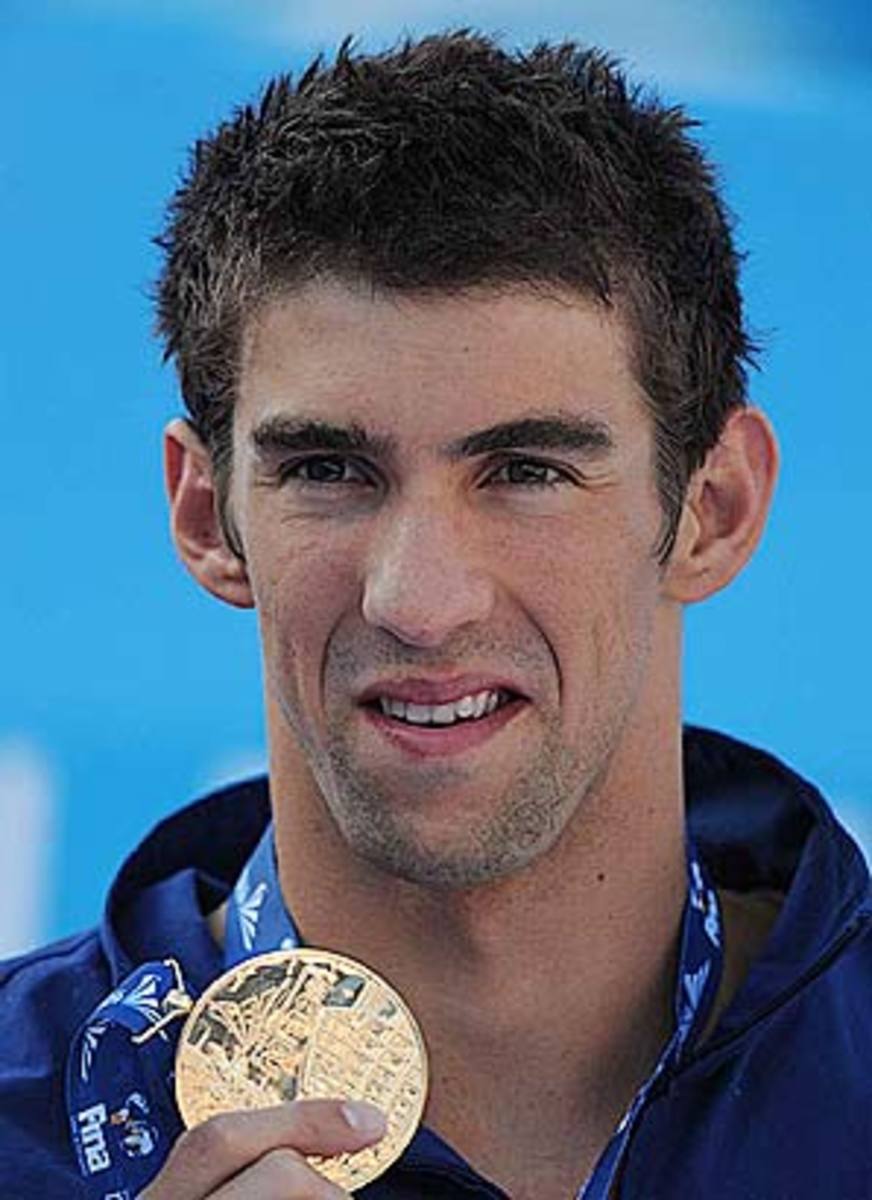
Phelps bounces back from loss with record in 200-meter butterfly
Of the 22 world records set over four days in Rome, this one was perhaps the least surprising. It was a commanding statement of a race in which Phelps led from dive to touch. He had the fastest split time at every wall and was never seriously challenged. Poland's Pawel Korzeniowski finished second in 1:53.23. "This was a time I really wanted to do last year," Phelps said. "It feels pretty sweet."
The victory came just 24 hours after the disappointment of his silver-medal finish in the 200 free. After that race, Phelps went back to his hotel, traded text messages with friends for an hour and then got his first good night of sleep since his arrival in Rome 10 days ago. One friend's supportive text message read: "I know you hate getting second, so if you want to call and let out some emotion, I'll be glad to listen."
But Phelps has always been the type who responds better to butt kicking from defeats than back patting from friends. He told coach Bob Bowman before the race that he planned to swim more aggressively than usual in the event. "I wanted to push the first 150 harder than ever," Phelps said. "The third 50 is usually when I take it easy, but I figured tonight I'm just going to go for it. I wanted to get into clear water as soon as possible."
To be fair, this is the one race in which Phelps really doesn't have any peers. He can afford to take a tactical gamble and recover to win even if the strategy starts to backfire. "You can always tell when something big is going to happen by looking at him," Bowman said. "He was ready tonight. If he was ahead on that last wall coming back, nobody was going to get past him."
Tyler Clary, the other U.S. entrant in the race, said he could see it, too. "I could tell by his demeanor in the ready room that he looked like he was going after it," said Clary, who placed fifth. "He just looked like nothing was getting in his way."
Phelps' reaction time off the blocks, .63 seconds, was the fastest of the eight finalists. Phelps used to be a horrible starter who was also very poor on the turns, but now is often first or second off the blocks and usually makes up ground or extends his lead pushing off the wall. His first three splits in Rome (24.76, 28.12 and 29.05) were aggressive. He seemed to take an extra long glide off the third wall in order to set himself for the final lap. After he finished, Phelps spotted his mother and sister in the stands, held up one finger and patted the water.
The victory gave Phelps a record total of 23 medals, including 19 golds, at the five world championships he has attended. He has not lost a 200 fly race since 2001, when he finished second to Olympic champ Tom Malchow. "It was the first event I made the Olympic team in in 2000," says Phelps. "It's been my bread-and-butter event ever since."
At a meet that has been dominated by talk of fast swimsuits as much as fast times, it seemed Phelps was making a statement by not wearing a full body suit. In fact, Phelps doesn't like to wear full body suits during butterfly events because he feels the suit constricts his shoulders. He wore one at the U.S. nationals last month in Indianapolis and had planned to do so again on Wednesday, but accidentally picked up the wrong suit from his hotel on the way to the pool. Instead of a suit he had broken in back home, he threw a brand new one into his bag which fit too snuggly around the shoulders. "I brought the legs along for back-up and just decided to throw them on," he said. "I wasn't making a statement [by not wearing a bodysuit]."
Next up for Phelps are two relays (the 4x200 free on Friday and the 4x100 medley on Sunday) and the anticipated rematch with Serbia's Milorad Cavic in the 100 fly on Saturday. Phelps rallied to beat Cavic by a hundredth of a second to win gold in the event at the Beijing Games. "It's going to be tighter than last year," Phelps said of Saturday's final, with Australia's Andrew Lauterstein and Spain's Rafael Munoz also in the medal hunt. "I have more speed than last year, so I hope I'm not at Cavic's knee again when I come off the wall."
Even if he is, Phelps has already proven he can periodically call on reserves to overcome the six-month post-Olympic training layoff that seemed to affect him on Tuesday. "His shape is as good as it's going to be right now," Bowman said. "Michael can get a lot out of a little bit of training because the training he does is really good. And you saw tonight he knows how to race."




